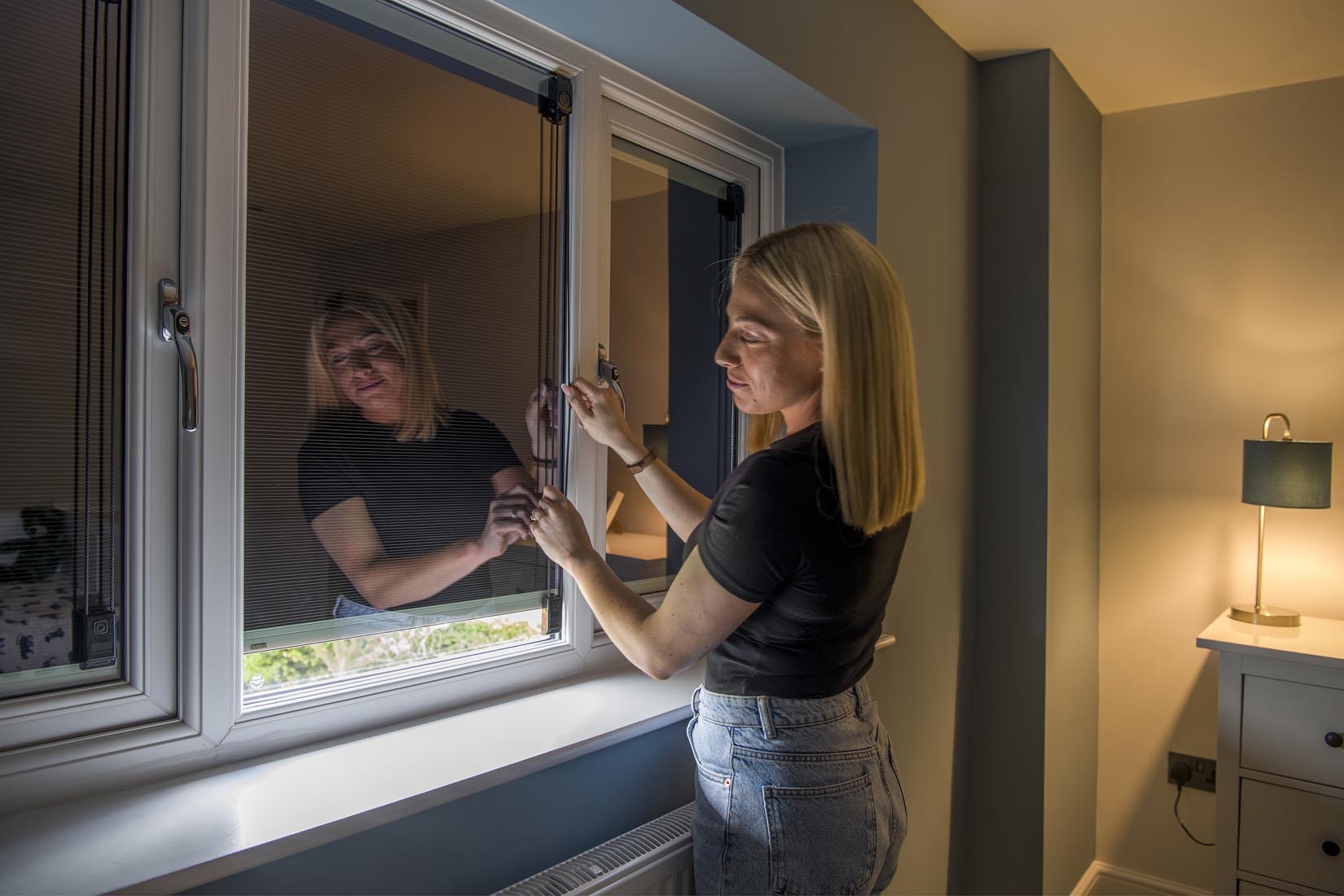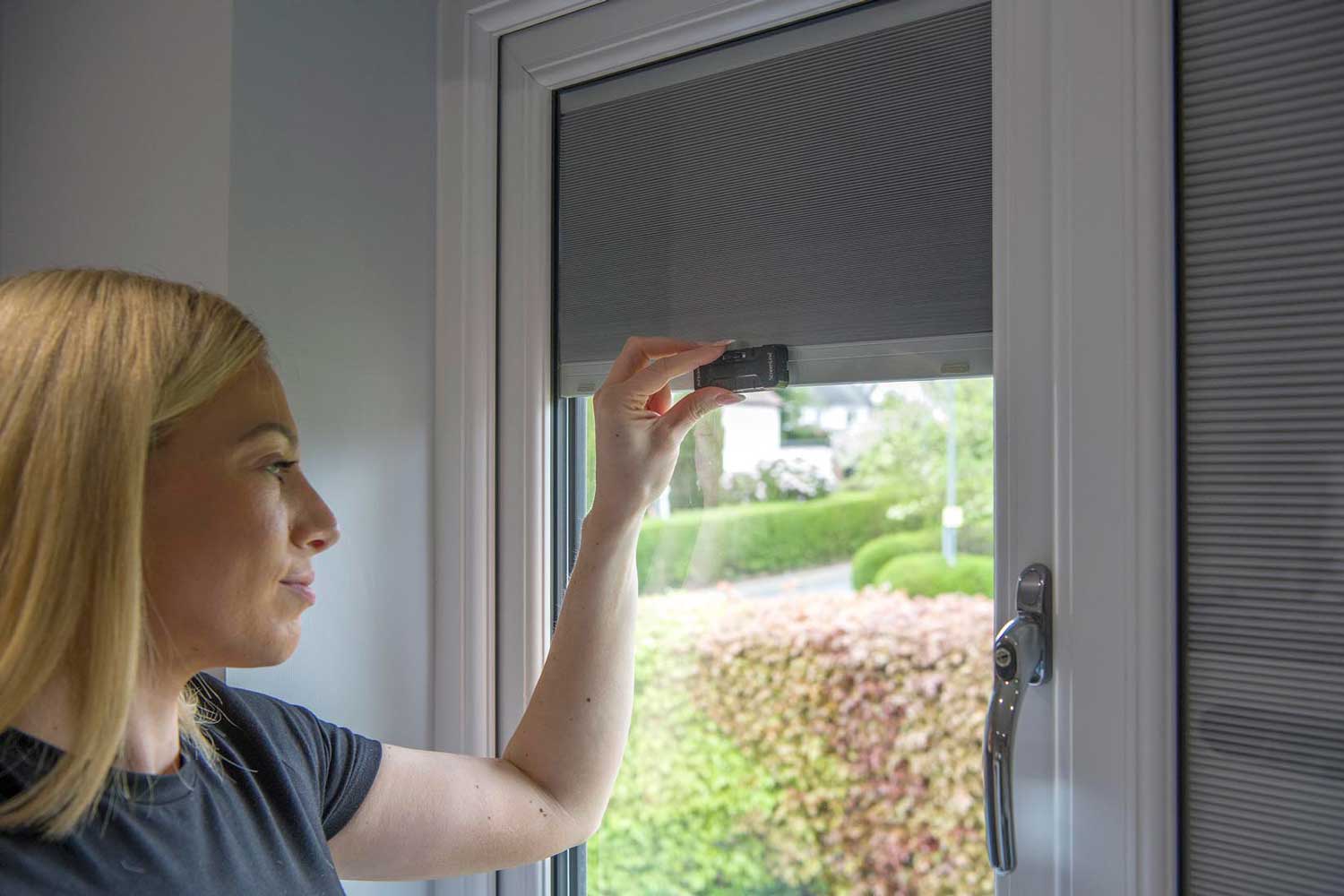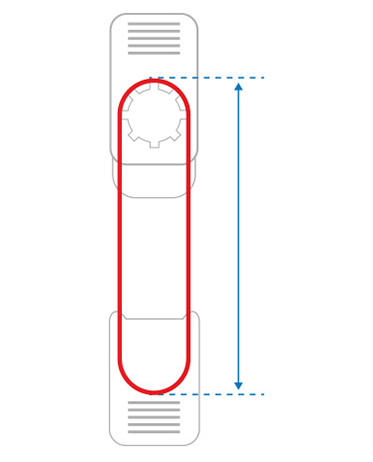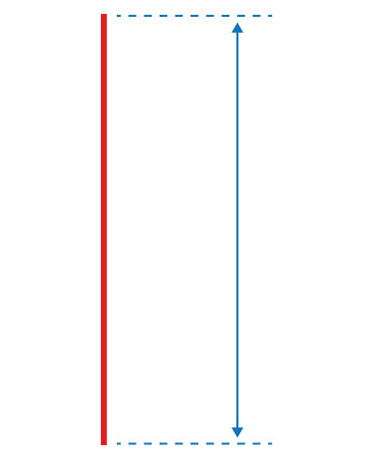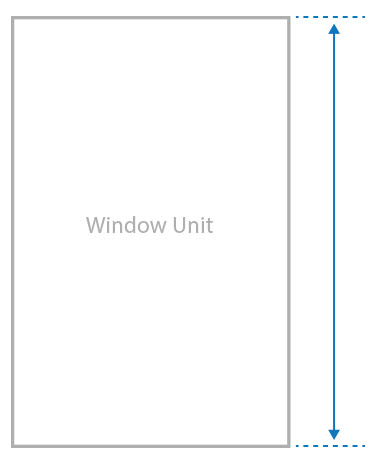Whilst the dark evenings of winter may make many people crave the long, sunny summer evenings outdoors, for many of us, being able to block light from entering our rooms as and when we want to is not only desirable, but it can actually be beneficial to our health and wellbeing.
Blackouts may be widely available as wall mounted roller blinds, but until Morley Glass introduced the ScreenLine pleated blackout integral blind to the UK market in 2021, there was no viable option available for anyone who wanted to achieve complete darkness inside their room with a blind that is fully encapsulated within the sealed unit.
How does the ScreenLine pleated blackout blind work
Standard pleated Uni-Blinds are superb at balancing light and shade but they are not designed to block light transmission. The blackout version, however, uses a fabric that stops light in its tracks and the blind system is designed to prevent light ‘bleed’ around the edges and cords. The high thermal resistance of the fabric also helps to keep a room cool in summer months.
There are eight colours available for this type of integral blind and a choice of control systems including a cordless magnetic slider, a classic cord-pull operated system and a smart home compatible motorised version. They can be used in all types of windows and doors, subject to maximum and minimum sizes, and every unit is made to order for delivery at no extra cost in as little as 10-12 working days.
Why would anyone need to blackout a room?
The pleated blackout integral blind was initially heralded as a solution in homes where there was the potential for external light to disrupt someone’s everyday life or stand in the way of getting a good night’s sleep. But in the two years that Morley Glass has been supplying the system as part of its Uni-Blinds range, it is clear that the reasons why homeowners want a blackout rather than a standard Venetian or pleated blind are extremely varied.
Helping night shift workers get some daytime sleep
According to the Office for National Statistics (ONS), in 2022 there were 8.7 million people defined as ‘night-time workers’. If you are one of them, you will be aware of how challenging it can be to sleep during the day, especially in the height of summer when the sunlight is at its strongest.
Replacing the standard double glazed unit of bedroom windows with pleated integral blind units helps to block out the daylight. As a result, it makes it easier for shift workers to create the right environment for daytime sleeping, so they can be more productive, alert and happier.
Creating the right environment for children to sleep
Much like the issue that shift workers face, parents of young children can find it difficult to get their children to sleep at their regular time when it is still very bright outside, such as in mid-summer. That’s why blackout blinds are perfect for children’s nurseries and bedrooms. Not only do they keep the light out very effectively, but they also help to keep the room cool for more comfortable sleeping.
Blocking out nuisance lights in urban locations
People living in towns or cities are often impacted by lighting which is outside their control, such as street lights, car headlights, security lighting and illuminated shopfronts. Standard curtains or blinds can be helpful in resolving this nuisance light, but they are not as effective as the Uni-Blinds pleated blackout integral blind. Hence why this type of blind has proved popular with urban dwellers!
The perfect home cinema experience
It is not just for better sleeping that people choose a pleated blackout, however. In recent years, there has been a boom in homeowners creating their own home cinema rooms, and this has seen a rise in the popularity of blackout blinds in general as they seek to re-create the big-screen experience. A number of Morley Glass installers have already installed Uni-Blinds pleated blackout blinds exactly for this purpose, usually received with five star reviews.
Find out more about pleated blackout integral blinds or call us on 0113 277 8722.

